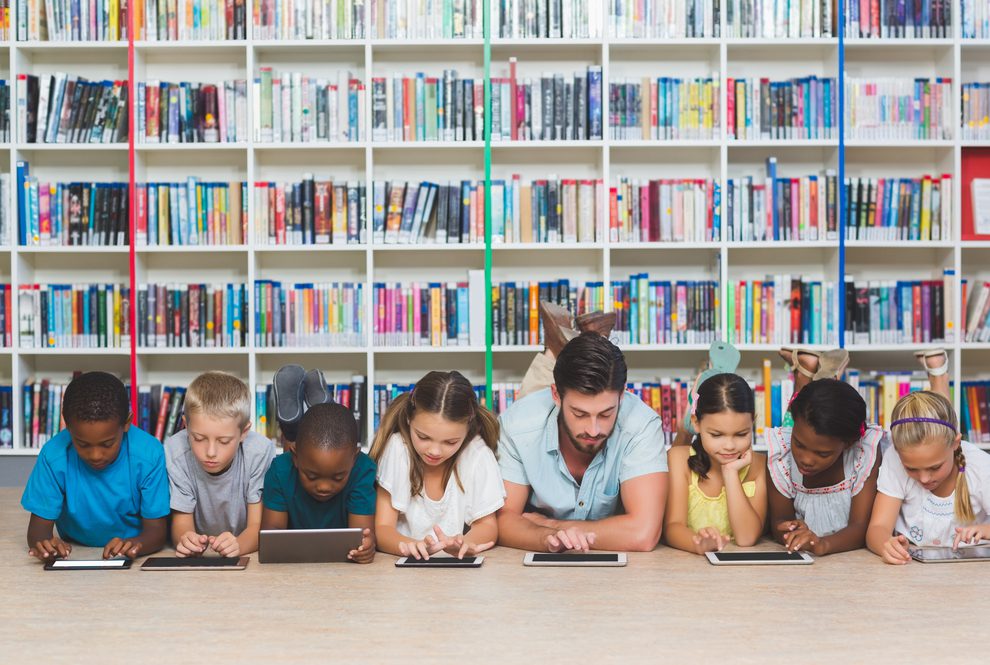
Incorporating “digital citizenship” lessons in school curricula
by Pisana Ferrari – cApStAn Ambassador to the Global Village
In this interesting article for EdTech magazine, digital citizenship is defined as ” a set of responsibilities all internet users should practice”. The issue of digital citizenship is gaining momentum worldwide and, given the early age at which children start to use internet, it has assumed a position of importance also in education. Initiatives in this respect have been taken by international organisations such as the UN, UNESCO and the Council of Europe. Technology is a key element of the 21st century classroom and “schools are realizing that in order to have a successful technology integration, they have to have digital citizenship lessons alongside it”, says Kelly Mendoza, senior director of education programs at Common Sense Education, interviewed in the article. Common Sense Education is an independent US nonprofit organisation “dedicated to helping kids thrive in a world of media and technology”. Mendoza says that digital citizenship lessons, should, in broad terms, consist of three key components: “digital civility”, “digital literacy” and “cyber hygiene”.
Digital civility (or etiquette)
Elementary school students should first of all be taught how to stay safe online. But, according to Mendoza, they also need to understand “that the internet is a real place made up of real people and communities” and that they should “treat people online just as they would in the real world”. In middle and high school lessons should be about helping students understand the consequences of using the internet. For example, they have to realise that you need permission to post a photo with a friend in it because this will be part of the friend’s “digital footprint”. Respect for others (appropriate behavior and language) and understanding of one’s own responsibilities are key aspects of digital civility.
Digital literacy
Mendoza points out that today the majority of the resources that students access regularly are online, “so it is particularly important for them to have the skills to assess the validity of information online”. Recent research has found that students can be “easily duped” and “struggle with the critical thinking required to evaluate content”. Digital literacy lessons help students learn to “read laterally”, to develop a “healthy sense of skepticism” and carefully check their sources. Also, with proper digital literacy skills, students will be able to better identify biases that they might come across in articles and other sources of information.
Cyber hygiene
As students are learning how to navigate the internet, they should also be learning how to navigate it safely and protect themselves. Educators can make sure that students are aware “of the permanence of things they put online” and other privacy issues. Gaming can sometimes help to get important concepts across and Mendoza mentions the game designed by Google on digital citizenship which “focuses on things like cyber-bullying and civility, but also tackles educating students on phishing and other cyberthreats they might encounter”.
Council of Europe and digital citizenship
The issue of digital citizenship in school children has recently been addressed by the Council of Europe, which launched, in 2016, a “Digital Citizenship Education Project” the aim of which is “the empowerment of children through education or the acquisition of competences for learning and active participation in digital society”. The project started with a review of existing literature, followed by a multi-stakeholder consultation involving 200 organisations and experts in the 47 member countries of the Council of Europe. The key recommendations of the Council of Europe include: mapping the administrative and legal responsibilities for school leaders, teachers, students and parents; making greater efforts to engage families; appointing a “Digital Policy Officer” in schools; publishing lesson plans and illustrating learning opportunities for the most interesting resources; conducting research to better understand the developmental windows for teaching and inculcating values, attitudes, skills and knowledge and critical understanding.
Data privacy rights
Digital citizens have responsibilities, as we have seen above, but also have the right to privacy. Digital citizenship is therefore closely tied to data protection; an important EU regulation (the “GDPR”) has come into force recently. It sets out stringent rules about consent/control of one’s personal data by third parties.
EdTech article: https://edtechmagazine.com/k12/article/2018/04/The-Digital-Citizenship-Curriculum-Digital-Literacy-Cyber-Hygiene-and-More-perfcon
Common Sense Education: https://www.commonsense.org/
Council of Europe initiative: https://www.coe.int/en/web/digital-citizenship-education/digital-citizenship-education-project
GDPR: https://www.eugdpr.org/